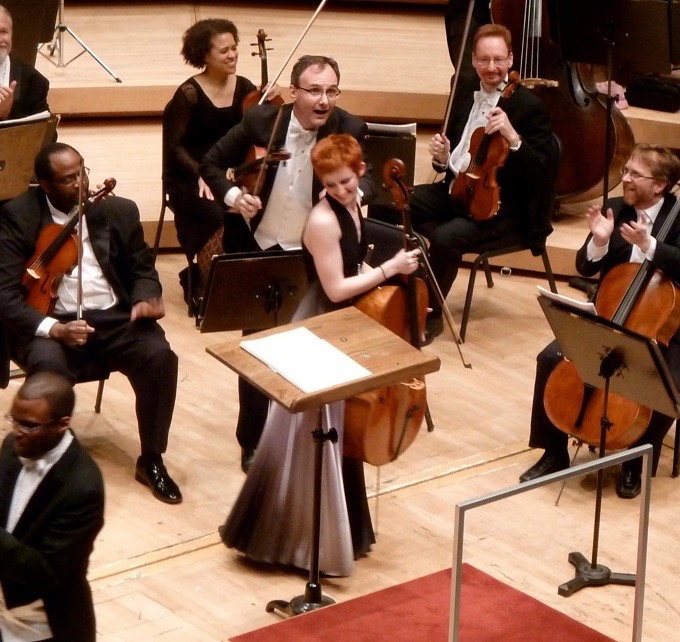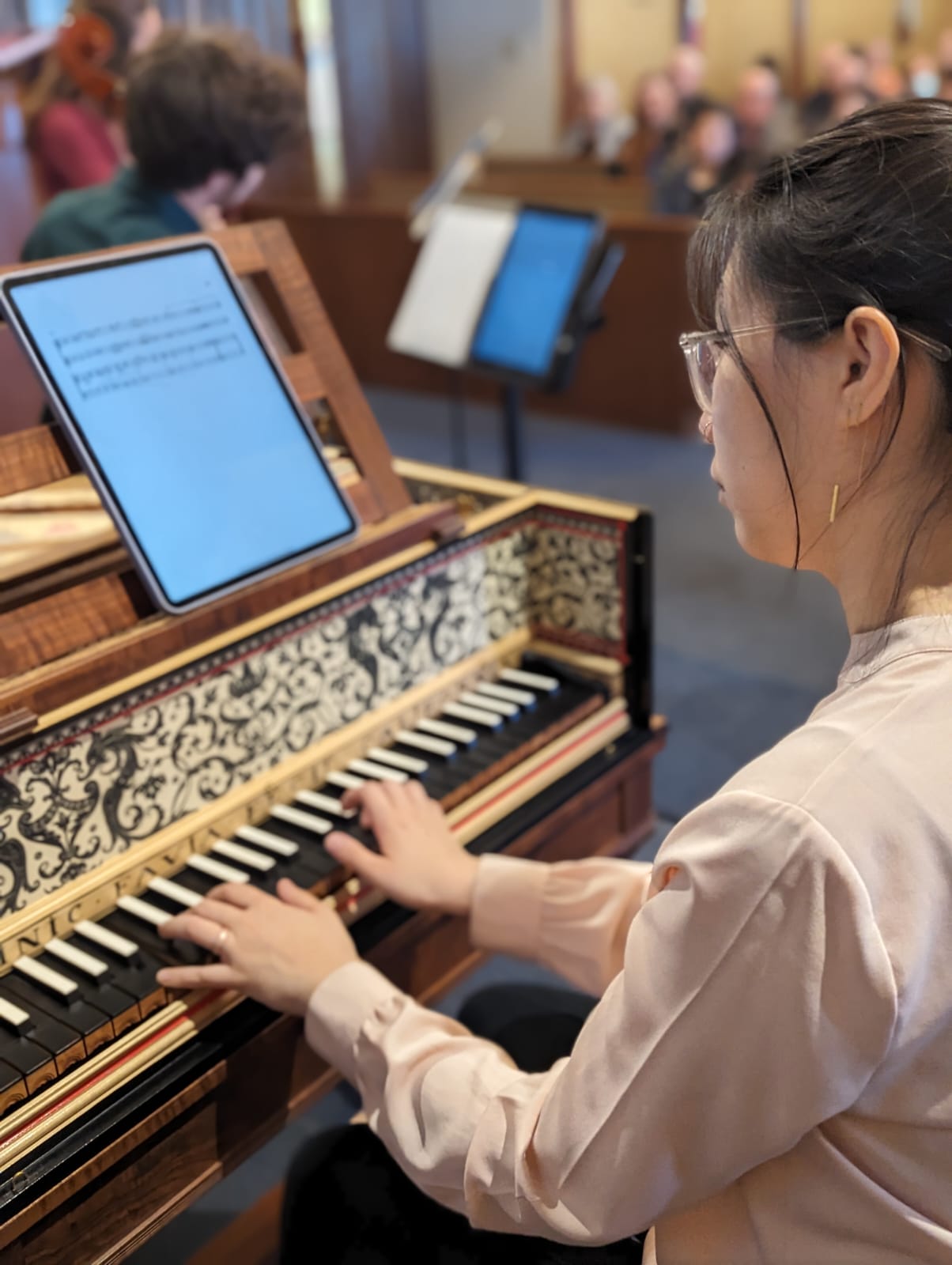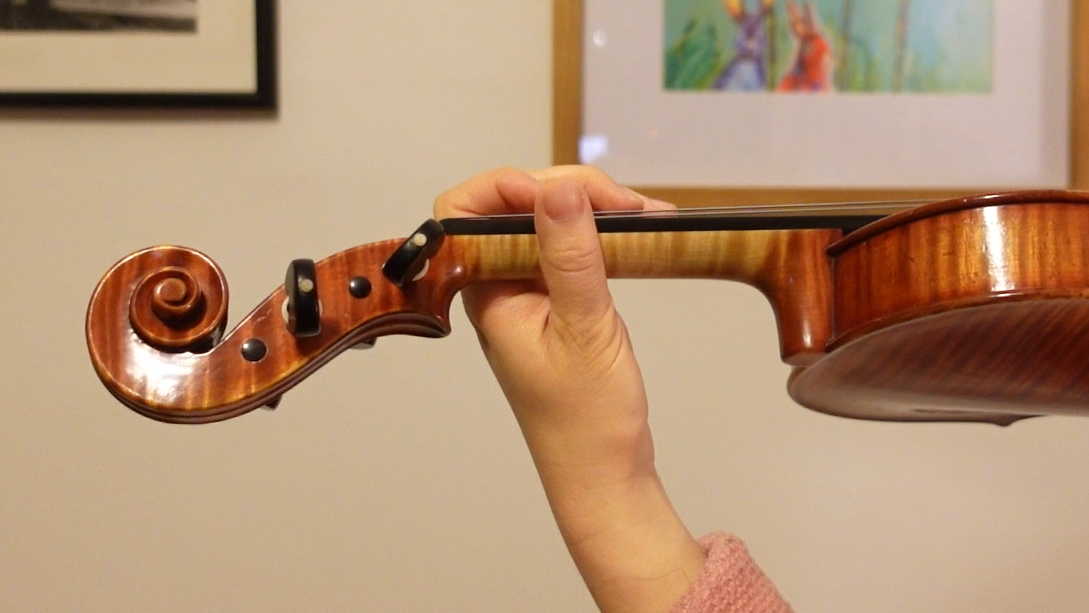An Interview With Professional Double Bassist-Turned Rocket Engineer, Fernando de la Fuente
As a musician, I’ve had moments of wondering what life would be like to go through a career change. What else I would do? How would my skills be applicable, and would I find fulfillment elsewhere? While I’ve continued making music for now, I’m still curious about those on the other side of a major career shift.
Fernando de la Fuente was one of my good friends in grad school. At the time, he was a devoted double-bass player with a passion for orchestral music. Yet, after an intense period of self-reflection, he made a bold decision to pursue engineering instead. Today, he is a rocket engineer for a top employer.
In this interview, Fernando describes the emotions he felt when he decided to stop pursuing an orchestral career, the unexpected freedom of discovering new possibilities, and how a musician’s skill set is a superpower when applied to other subjects.
I hope this interview will offer insights, whether you’re a musician contemplating a career change or just interested in the life skills taught through music.
Kiyoe: Would you like to introduce yourself to people who don’t know you?
Fernando: My name is Fernando de la Fuente. I am from Irvine, CA, and I took an interest in the double bass in middle school, ended up loving the instrument and the music, and decided to pursue playing double bass in an orchestra as a career. Then I attended UCLA where I played in every orchestra I could, including pre-professional groups like the American Youth Symphony. After UCLA, I attended DePaul in Chicago for my masters and played with the Civic Orchestra of Chicago acting as a co-principal bass.
For two years following grad school I had what I called my Bohemian years when I was neither in school nor in an orchestra job. After that period I decided to return to school for an engineering degree at Oregon State. Immediately following that I took up a job with SpaceX in McGregor, Texas, at their rocket engine testing facility. Now I’m in Boca Chica in South Texas at the launch site working on rocket launch hardware.
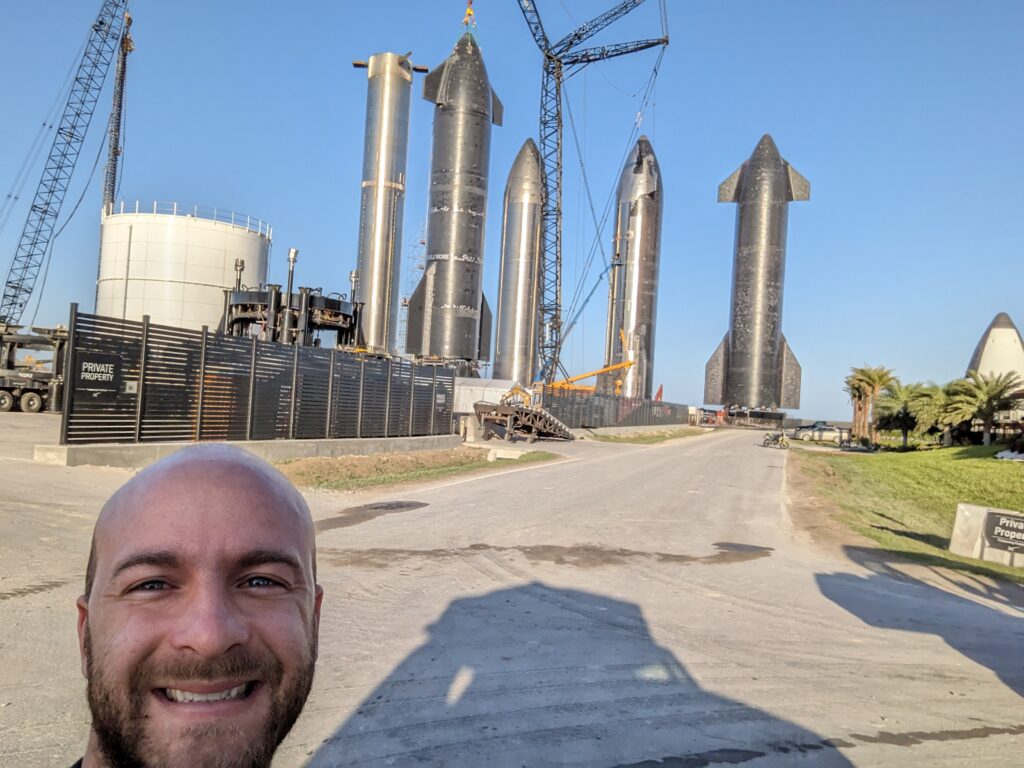
Kiyoe: Do you still play bass?
Fernando: I still have my bass, and it is currently in my room. I don’t really play it anymore, but every once in a while I flirt with the idea. One time a colleague found out that I played the double bass, and he’s a pretty passionate guitar player. He just showed up to my house with four or five other musicians who brought all of their equipment and gear with them. We crammed into my tiny 400sqft home, and then started playing covers of classic rock songs. And it was actually a weird experience because I hadn’t played double bass with people at this point for eight years
I play piano more now because with double bass you need an orchestra to really enjoy yourself. So I’ve actually been playing a lot of piano lately. I bought a grand piano when I started my job and I currently have it in my tiny home.
Kiyoe: I guess bass is one of those instruments that you really do need other people to play with?
Fernando: Absolutely. The role of the double bass has always been a support role. We have our moments where we shine in orchestra music. But for the most part, we are in the service of the greater musical picture. So playing bass by yourself is much less rewarding when you are not in a group. But playing piano by myself, I get a little bit more immediate musical gratification that way.
Kiyoe: When you were growing up, how did music play a role in your childhood?
Fernando: My family always attended symphony orchestra concerts or chamber music recitals so I was always exposed to it. It was one of those family obligations that you attended as a child. My family is very forceful, and I didn’t have much say.
I started playing piano in the fourth grade because my parents said they already paid for some lessons for my sister who had to miss them. They didn’t want to throw away the money, so they made me take the lessons. Little did I know this was a trap all along for me to start playing. So I started doing that and not really having a ton of fun.
But then I found stuff that I liked to play, which was Beethoven. My best friend at the time, Shota, then made me join the middle-school orchestra so we could spend more time together. We would play electric bass duets and also stand up bass duets, and cover our favorite bands at the time. We were really big dorks, but we had a lot of fun and we loved it. I blame him a lot for getting me into music, or getting me into double bass specifically.
After that, it completely flipped: my parents were trying to get me to stop playing. I would spend the afternoon at the piano all the time. I joined both orchestras in middle school and high school, and I really couldn’t stop playing. It was hard to pull me away. I just got really passionate and really inspired.
Kiyoe: How did you decide to major in music?
Fernando: My first double bass teacher was Doug Basye. At one point, he said, “Hey, it’s time to start getting ready for college auditions. You can do this as a career. You have a good chance of getting into school playing music.”
This blew my mind because I’d never even considered it. A life of playing this music seemed incredibly appealing and like a dream. I didn’t even know what I wanted to do in college. But my whole mentality just shifted to working on this. It just consumed my life.
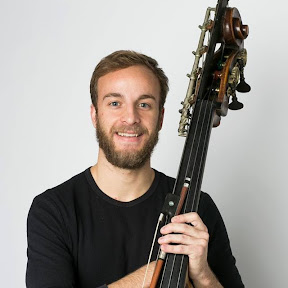
Kiyoe: What did you envision a music career to look like?
Fernando: After grad school, my vision was to get a part-time job and start fiercely practicing and working audition lists to be ready to go take auditions with an orchestra. And ideally, after some time, I would get a job and keep working my way up from orchestra to orchestra and continuously try to be in the best one I could. I really liked the idea of getting to explore the orchestra repertoire regularly with the same group.
At the time, I was an incredibly inspired person. I would recite Herbert von Karajan quotes like, “If you’ve met all your goals, you’re not setting them high enough.” I was infatuated with these figures so I set my dreams pretty high and lofty, because the people who inspired me did too. All of these composers and musicians who inspired me had way more difficult circumstances than I ever would, so it seemed natural to set very ambitious goals.
Kiyoe: There’s nothing wrong with dreaming big.
Fernando: I always wanted to be in the best possible musical group I could. I was always trying super hard to be principal or get into an orchestra. These really do feel like these crazy, monumental feats when you achieve them. We drive ourselves crazy in the practice room for months at a time, such that when you come out on top in an audition the feeling is quite surreal. You’re working insanely hard and there’s so much passion and so much of yourself that goes into the process that it really feels like those kinds of quotes are natural to the lifestyle.
Kiyoe: Once you were out of music school, did the reality of being a musician differ from what you had expected?
Fernando: This is where it gets difficult. Leaving music school, as it turns out, I was incredibly burnt out. I was finished with school and I moved back to California. The goal was just to spend a couple of weeks away from the instrument just decompressing and then slowly get myself back into gear, into discipline again to practice and get these jobs. It was harder to jump back on the train than I thought. I kept entering the practice room and then leaving shortly after. Not understanding why I couldn’t put the same time in that I did before. It was like when you watch yourself in a dream, and you don’t really have control over what you’re doing. I could just observe myself not have the willpower to put myself back into the practice room.
I didn’t know who this person was, who didn’t want to go practice, who didn’t want to go play music. I would try and sit down the instrument and force it, and it just wasn’t coming. I ended up listening to myself. I put the instrument back down and went along with my day. This turned into a week, two weeks, turned into a month. At the time, I was just in this process of recovery and just trying to understand what’s going on.
After three months of this, I was like, okay, something’s still not right, I’m going to go ahead and move back to Chicago. That’s where I was in the mindset of grinding and playing, and my friends and colleagues from school were in a similar state of working towards full time careers as musicians. Maybe it’s good to go surround myself with people trying to do the same thing.
But the motivation still wasn’t there. To make ends meet, I picked up odd jobs. I became an apprentice machinist in a factory, I worked in coffee shops, grocery stores. At that time- I call it my Bohemian years- I was not really making any money, barely making rent, but I was listening to myself needing recovery time. I was trying to find out how to get back onto the instrument and time and time again, the answer would be not yet. Which was scary and, honestly, very, very hard. Weirdly enough, I also enjoyed and look back on this period very fondly. While I was having my struggles to get back into musical gear, it was very liberating to let go and just not have something I felt I had to work towards, to focus on, to discipline my day for. I spent my days as I pleased, spent time with friends, read, and just lived in the moment.
Kiyoe: Was there one defining moment that made you decide to change careers, or were there several factors that added up over time?
Fernando: It wasn’t one defining moment but several factors. When I realized that I was having such a hard time putting myself back into the practice room, it dawned on me that if I’m not able to sustain this right now, how am I going to be able to sustain this for the rest of my career. And coming from the altruism that I had for music, I would be ashamed if I can’t bring to the table what I should for these pieces of music.
It’s such a bass player mentality of “If I’m not able to completely devote myself in service of the music, if I can’t put everything out there for this composer all the time, then I shouldn’t do it.”
Eventually my family reached out to ask me what was going on, and I couldn’t really explain to them what it was I was going through. They proposed returning to school for an engineering degree. I thought the idea was really fair and that it was time to abandon my living month to month with no concrete plan for the future in sight.
I had some instrumental mentors help me discover what the next path was for me. My DePaul mentor, Alex Hanna, asked me something to the effect of, “Can you identify three core things that bring you happiness in your day to day?” It took some serious work and self reflection to find the common denominators across all of the things that I ever found joy in but at the end of the day it was collaborating with people, being a creator and working with my hands. And then engineering made a lot of sense as the next chapter in my life.
Kiyoe: What was it like going back to school and learning a new subject?
Fernando: It was crazy. First of all, going back to school as an adult and hanging out with undergrads who are fresh out of high school was a hilarious cultural experience. I was with a bunch of eighteen year olds as a twenty seven year old in all of these rudimentary science, physics and math classes, but we were all studying together, doing the same homework, and collaborating on the same group projects, all while feeling I lived an entirely different life before that. It was very humbling because I felt so far behind. I always thought, “I wish I were in their position eight years ago. Have I wasted all this time?”
I had to ground myself and remind myself I should be incredibly grateful for the experiences I got to have playing music. Not everyone can say they played in an orchestra under Riccardo Muti or in a string sextet with Yo-Yo Ma. I was blessed to play with some of the best musicians of our time in incredible concert halls like Disney in L.A. and Symphony Center in Chicago. And to say all that was a waste of time because now I’m a college freshman in a calculus class at 27 years old was simply not true. I had to constantly remind myself it is okay to be here and that my path was different from others.
It was interesting observing myself as a student versus a musician. Having returned to school, I wanted to be as good as I could, as quickly as I could, and get out of there as soon as I could. My first quarter I was the best student ever. I studied with the same maniacal focus as I did when I practiced the double bass, and for the first time across all of the schooling I have ever done, I got straight As. I had never been this student. I ended up dialing it back a ton. I relaxed way more and just kind of realized that it wasn’t the best idea to burn out of career path number two, and that I should also just enjoy myself and this process.
The identity shift was super difficult. It was very weird to put one side of me away and then start a new one.
Kiyoe: It seems like it would have been surreal to let go of all these dreams that you felt so strongly about.
Fernando: Yeah, absolutely. I mean, for the longest time, you could have asked anyone I spent time with, “what does Fernando want to do?” And everyone would say Fernando wants to play in an orchestra. And to pull that out from under me and just kind of be free floating and have no idea where I’m going to be in three years was really jarring. I just had to learn to embrace that.
Kiyoe: Was there a part of it that was liberating as well? Because even though you were so passionate about music, it almost felt like there was a bit of torment in that passion too, at least from what I remember about you from that time.
Fernando: Yeah, absolutely. The fact that I got to really explore and try something completely new was incredibly liberating. There are so many different fields that are interesting. And the fact that I could just pick and choose whatever I wanted to do next was really nice. There were so many things happening in science and technology that I had no idea of until I started going down this path. And it was really cool to see that I could insert myself into any situation I wanted.
Now I can see myself in a wide breadth of careers doing a wide range of things, even today. And I can be as free as the wind and try something else if I want to, which is liberating. It is weird to say something like engineering is liberating, but I do think that there’s some truth to that.
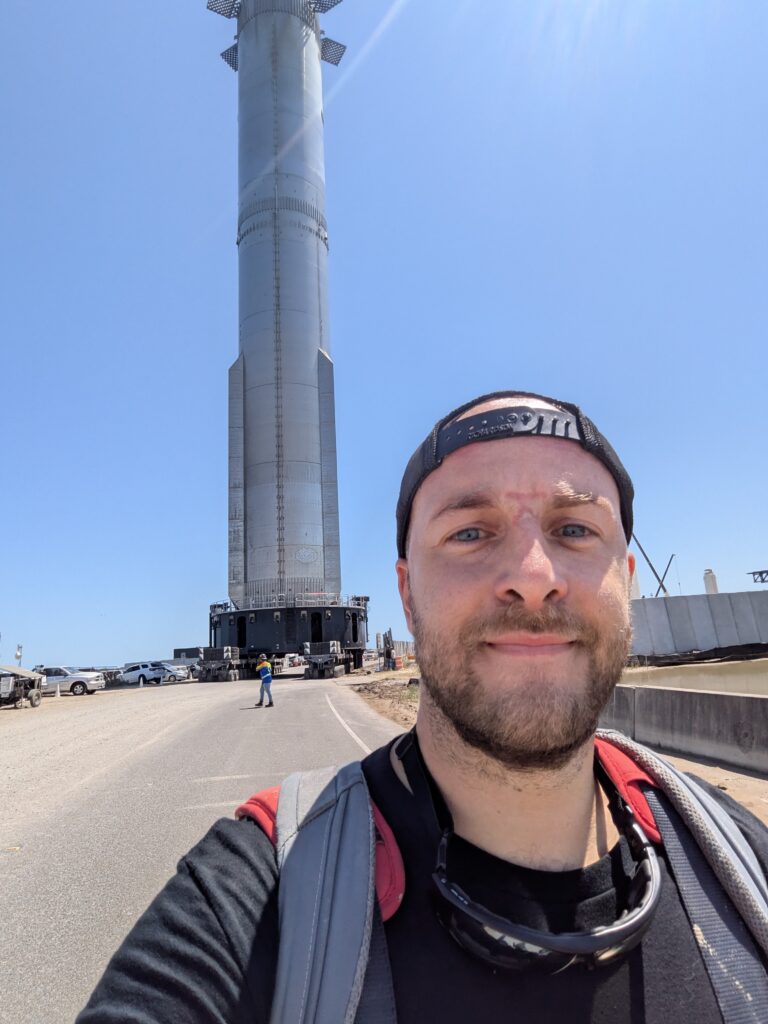
Kiyoe: Now that you have experienced this new lifestyle and this liberating identity shift, how would you compare your life as a musician to your life as an engineer?
Fernando: I actually think I approach engineering in the same way that I do music, and I think there is a lot more in common for the two than people think. At the end of the day, for me, music and engineering are both intense applications of problem-solving. In music, I was always asking, how can I get this phrase to sound like this? How can I make my fingers move across the fingerboard to achieve what the music is asking of me? The problems in music are so arbitrary and hard to describe but when you’re in the practice room, you have to be creative and prescribe solutions all the time, coupled with rigorous discipline.
In my engineering work today, the answers are also not there. It’s very similar to music where I have really arbitrary problems that I’m trying to refine into solvable chunks and figure out what works. There’s a lot of trial and error, sometimes there’s guesswork, but I’m still prescribing solutions and seeing through the execution of whatever I came up with.
I almost feel that a lot of engineers could benefit from spending time with music. With music, you are really forced to be vulnerable a lot of the time, and you have to stand behind your work in front of a mentor or literally on a stage with people who are there to judge you.
When exposing yourself in such a way, that’s when you can actually find out how to get to your best work. And that really hasn’t changed for me. Spiritually, I do feel like I approached music much more religiously. It would be the equivalent of going to church. Music is my cathedral where I get to pay homage, and I feel like that was the closest to God I would ever come. Not so much today. Today my work is much more practical, much more result oriented. I kind of miss the religious aspect of playing music.
Kiyoe: I feel like I know what you’re talking about in the sense that as a musician, often our self-worth and identity as a person is so tied up in our work. Whereas, I wonder if in your current career, are you able to clock out and stop thinking about work and separate who you are from the work you’re doing a little bit more?
Fernando: My work definitely still follows me home and I definitely have a hard time clocking out.
Musicians for sure have a hard time dissociating their self-worth from their performance. That was something I really focused on a lot as a musician: I cannot wrap myself up in how I played that day because then my self-worth is a roller coaster, and I work hard to maintain this skill.
I think that skill for anyone, in any profession, is very difficult. Most people don’t expose themselves to the crazy vulnerability of private lessons, master classes, auditions, recitals, and so on, so they don’t have practice separating proficiency from self worth. It’s just much more on the forefront for musicians, because the feedback loop is so much more immediate, sometimes literally instantaneously. You can see how hurt younger musicians get if they’re playing badly that day, so we have no choice but to build these skills through the course of our careers.
At work a lot of us take on big responsibilities and really hard problems – If things we do don’t work they sometimes have really big implications, and your self-worth can be tied up in that as well too.
Kiyoe: Are there any musical skills that can be applied to your current life, or vice versa?
Fernando: I think what musicians have that everybody else should have is a mentor. When you have a good mentor as a musician, and that relationship isn’t abused, you have a teacher who cares about your wellbeing and has a lot of valuable lessons to teach you and wants the best for you. Navigating life that way is incredibly helpful.
But in school, when you’re getting your degree, you’re just another student in a class of however many students, just going from class to class, getting spoonfed the same information from the same teachers. You don’t have somebody that you’ve developed a years-long relationship with who understands you and your goals and your strengths.
It just amazes me how lucky we are in music school, where we get to build that relationship with somebody. I worked with my bass teacher, Chris Hanulik, for four years and every single week for an hour I got 100% attention to what I was working on at the time. Same thing with Alex Hanna. That completely shaped me and helped me navigate all those things I was trying to do. It’s very weird running into students in other disciplines who don’t get to develop that kind of relationship with a mentor or a leader who could answer a lot of the questions that they have. I think that’s something musicians should be incredibly grateful for and that other fields should foster.
Kiyoe: Do you have any advice for other classical musicians who might be contemplating a career change?
Fernando: The first one is to have gratitude. It is so hard to describe to people how special it is playing music with others in the circumstances that we got to. That experience should not be taken for granted. It’s super special to get to do that so just treasure it and hold it dear.
Patience was also a big one for me. In a way I started over, and now I’m an engineer with a company that is quite competitive to get into, but it took hard work and some time to get to where I am now. I had to do school again, I felt behind, and was humbled at doing the same things people a lot younger than me were doing – theres nothing wrong with this
We musicians develop a really incredible skill set, and when those skills are applied to other things, we have some superpowers. You will amaze yourself how far you will be able to go with the hard work, the discipline, patience, problem-solving, and creativity you developed across the course of your music career. These things don’t just go away, and they’re all still quite applicable. You have to remember that you have learned and grown a ton over the course of your musical career, and to keep applying these lessons to whatever you decide to do next.
Kiyoe: What is life like for you now?
Fernando: As far as music in my life, I will try to play an hour or two of piano after work when I have the time. It’s very personal. I’m more of an amateur at piano these days, since I stopped private lessons at eighteen, but it’s fun going to this instrument and taking all these lessons on practicing well that I’ve learned over all these years and being my own teacher. Some of my funnest nights are just inviting a bunch of friends over who are ex-musicians, and we’ll all have drinks and goof around playing piano.
Kiyoe: Is there anything you’re looking forward to?
Fernando: In the near future, I’m planning on a move to Seattle. I’m excited to go see a lot more classical music again and spend time at the Seattle Symphony. And every once in a while, I flirt with, “What if I just started practicing again? What if I got a sub position or something like that?” I’ve been slowly working on it, attending more concerts and surrounding myself with live music again. I keep telling myself I’m going to work towards a piano recital. I’ve been working on some Chopin Nocturnes and some Bach, and it would be nice to play that for friends. I forgot how hard it was to work towards a recital. It takes a lot of time, and a lot of practice.
But I think I’m generally in a very happy place where I get to keep playing music in my life, and it’s very personal, and I get to share it with friends.
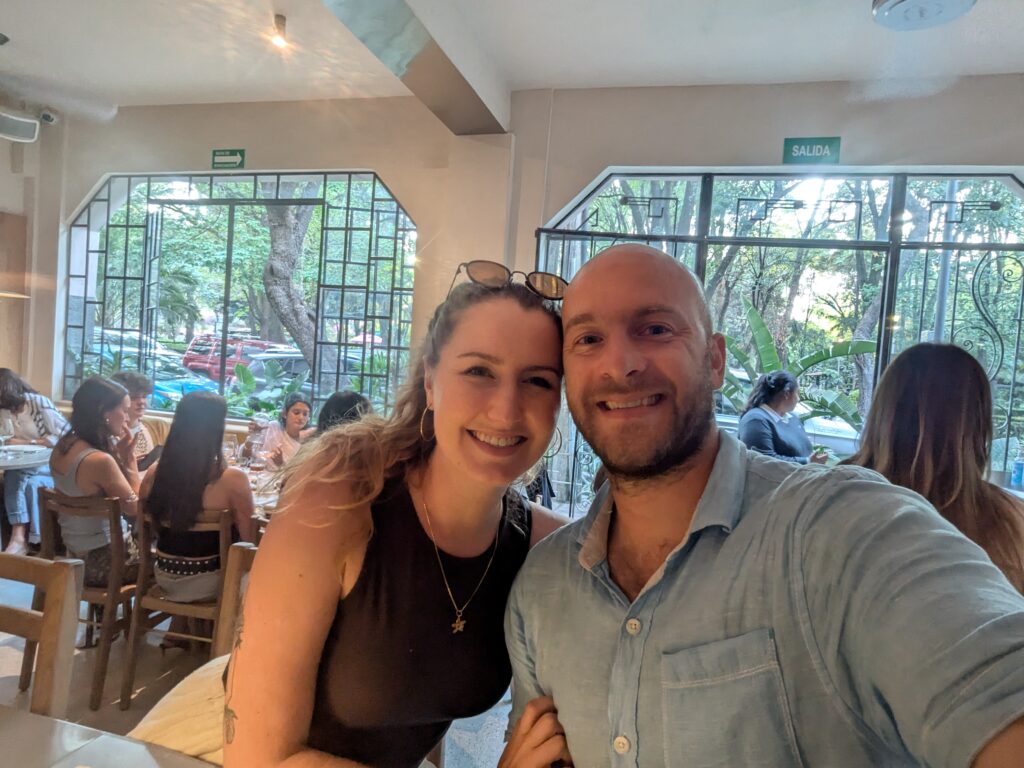
To my readers: I would love to hear your thoughts on musician career changes. Feel free to leave a comment below. If you’re interested in more musician interviews, here are my latest:
- What It’s Like To Fulfill Your Parents’ Musical Dreams
- How To Treat Violin-Related Pain With Sotai
- How Passion and Friendships Shape A Meaningful Life In Music
- How To Build A Nationally-Recognized Non-Profit Music Ensemble
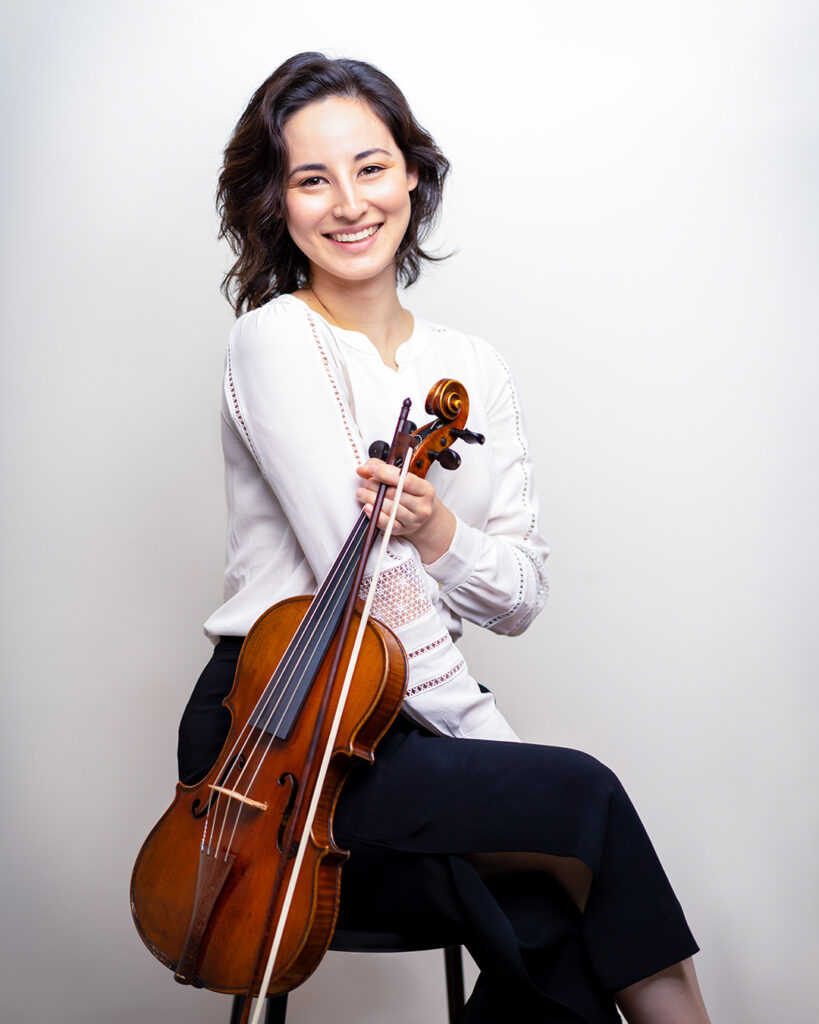
Kiyoe Matsuura is a freelance violinist specializing in baroque performance. She is also co-founder of Ensemble Vitelotte which presents music by historical women composers, and she runs a YouTube channel focusing on violin pedagogy and student repertoire. She has written numerous articles on violin pain prevention, practicing, and pedagogy.
Latest Posts From The Blog
How To Do a 180° Career Change As A Classical Musician
As a musician, I’ve had moments of wondering what life would be like to go through a career change. …
What It’s Like To Fulfill Your Parents’ Musical Dreams
With discipline, talent, and passion for orchestral music, 32-year-old cellist Sonia Mantell has alr…
How To Treat Violin-Related Pain and Injuries With Sotai
For violinists who have struggled with playing-related pain despite trying countless remedies, a Jap…
How To Build A Nationally-Recognized Non-Profit Music Ensemble
Starting a non-profit music ensemble is a dream shared by many musicians, but turning that dream int…
How Friendships and Passion Shape A Meaningful Life In Music
Have you ever reflected on the values that guide your career as a musician? Pianist, harpsichordist,…
How To Overcome Left-hand Pain While Playing Violin
Left-hand and arm pain while playing violin is a common challenge for students. As a violin teacher,…
